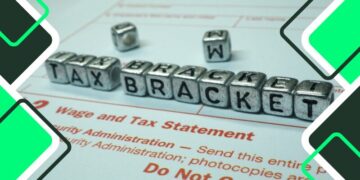How to budget? A 5-step guide

A budget is an essential tool for managing your personal finances; it serves as a plan that allocates your spending. Its purpose is to provide greater financial freedom and reduce the stress associated with money management.
A well-crafted budget helps identify your needs, wants, and financial goals, while also allowing for greater stability and financial awareness.
So, what is a budget and what is it used for?
For a budget to be effective, it’s essential to track income and expenses, keep spending below income, and review the process monthly. A budget is not a one-time task; it should be viewed as an ongoing commitment. Identifying fixed and variable expenses is crucial, and calculating the monthly average helps to understand spending and incorporate financial goals into the budget. All of this aids in prioritising these objectives before spending on discretionary items.
It is always fundamental to compare income with expenses. If spending exceeds income, adjustments need to be made, prioritising the reduction of discretionary expenses. Putting the budget into practice and regularly monitoring expenses is vital for identifying areas of improvement. A well-structured budget can provide greater control over finances, allowing you to spend money on the things that truly matter.
Learning to budget is an essential skill, yet few people utilise it. Of course, creating and maintaining a budget won’t eliminate your financial stress, but it will equip you with the tools to make better decisions.
And why is budgeting important? Knowing your financial priorities means taking the most appropriate and necessary steps to achieve your goals.
However, many people feel overwhelmed when dealing with the budgeting process. The following text presents the five key steps to create an effective budget, explores the popular 50/30/20 method, and answers some frequently asked questions on the topic.
Five main steps to create a budget
Determine your income
Start by identifying all sources of income, including salaries, bonuses, and any additional income. Then, it’s important to determine your net income, which is how much you actually receive after taxes and other deductions are taken out.
If there are automatic deductions, such as contributions to a retirement plan or health insurance, it’s important to add these back in to get a clear view of your finances.
List your expenses
Take stock of all your monthly expenses, separating them into fixed categories, such as rent and bills, and variable categories, such as food and entertainment. This step is crucial for recording your spending to understand where your money is going. This can be done manually, using a spreadsheet, or through budgeting apps.
By tracking your expenses, you can identify areas where you are overspending and consider making cuts.
A common practice is to review your bank statements and categorise your expenses. Keeping this tracking up to date will help ensure you stay within your budget limits and adjust your strategy as needed.
Set financial goals
Automating your finances is an effective way to ensure you reach your financial goals. Set up automatic transfers to your savings, investment, and retirement accounts. This reduces the temptation to spend what should be saved.
Additionally, establish clear financial goals, such as saving for a trip, paying off debt, or increasing your savings. This will help guide your budgeting decisions.
Finally, consider finding an accountability partner or joining an online support group. Having someone to share your financial goals with can increase your motivation and commitment to sticking to your budget.
Create your budget
Based on your income and expenses, create a plan that allocates a specific amount for each expense category. There are different methods for budgeting.
Choose a budgeting system and template that aligns with your financial habits. This choice should reflect your needs and lifestyle.
Consider using spreadsheets, finance apps, or even pen and paper to organise your budget.
Monitor and adjust
Regularly track your expenses to ensure you are following the budget you’ve created. Make adjustments as necessary to stay on track and achieve your financial goals.
This monitoring and adjustment are crucial, as your income and expenses will change over time. Managing a budget is not a one-time task but an ongoing process.
Reviewing your budget regularly, perhaps once a quarter, to adjust your goals and priorities is part of this process.
Additionally, if the method you’ve chosen for managing your finances isn’t working, don’t hesitate to try a different approach. Flexibility is essential for maintaining an effective budget.
50/30/20 method
One of the most popular budgeting methods is the 50/30/20, which offers a simple and effective way to divide your income. Below, we outline how to apply this method:
- 50% for needs: Needs include everything you require to live and work, such as rent, food, utilities, transport, and insurance. If your essential expenses exceed 50%, consider reviewing your spending on wants or adjusting your budget.
- 30% for wants: Allocate 30% of your income for non-essential expenses, such as entertainment, dining out, and hobbies. Separating wants from needs can be challenging, but it’s important to have room in your budget for small indulgences. If you’re struggling to get out of debt, you might choose to cut back on spending for wants until your finances are more under control.
- 20% for savings and debt repayment: Use this portion of your budget to save for emergencies, retirement, or to pay off debts. It’s essential to prioritise debt repayment, especially if you’re dealing with high-interest rates.
Following this method provides a balanced framework that helps ensure you meet your needs, allows for a certain level of enjoyment, and still sets aside money for the future. While this method is popular, it may not suit everyone’s situation; however, it can help you adjust your spending and potentially improve your financial health.
Frequently asked questions about budgeting
- How do you create a budget spreadsheet?
To create a budget spreadsheet, start by determining your net income and recording your current expenses. Use formulas to calculate the difference between your budget and actual spending. Monitor and adjust the spreadsheet regularly to manage your finances effectively.
- How do you maintain a budget?
Maintaining a budget requires constant monitoring. Regularly check your statements, categorise your expenses, and keep a consistent record. Use tools like spreadsheets for budgeting apps to make tracking easier, and adjust as necessary.
In conclusion…
Creating and maintaining a budget is a crucial skill for financial health. By following the outlined steps and adopting a management method for your money, it’s possible to gain or at least improve control over your finances, reducing stress and increasing financial freedom.
Budgeting is an ongoing process; adjust as needed and don’t hesitate to seek help if necessary. With patience and practice, you can build a more secure and rewarding financial future.
Related content

Understanding tax brackets and how to minimise your tax burden

The Risks and Rewards of Investing in ETFs

10 Smart Investments for Young Australians in 2025

Emergency Fund: How to Start and What to Do

How to Take Advantage of Tax Benefits in Australia
